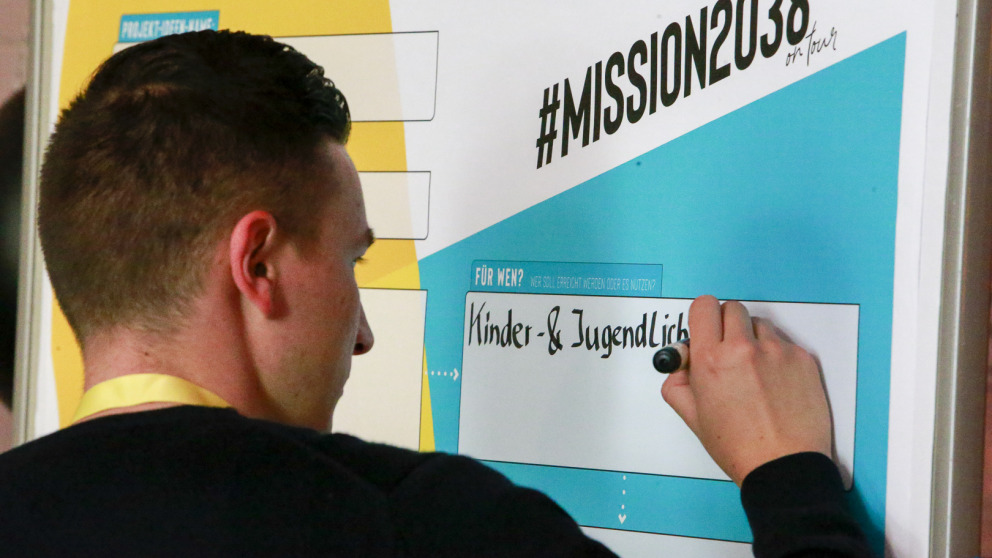Making Youth Participation in Structural Change Succeed
04.07.2022
In recent years, the rights of children and youth to participate in political processes have been expanded. But there are still deficits when it comes to putting these rights into practice. In a new publication, IASS researchers make recommendations on how to successfully engage young people in processes of structural change.

Participation has been part of debates on sustainable development for quite some time. At best, participation processes can galvanise people and improve their feeling of self-efficacy. In Germany, the Child and Youth Welfare Act (Kinder- und Jugendhilfegesetz) sets out comprehensive participation rights, and different German states have passed a number of provisions for child participation. But their reach varies widely.
Researchers David Löw Beer and Verena Holz analysed various projects concerned with children and youth participation in Lusatia’s process of structural change and conducted interviews with representatives of children and youth organisations in Brandenburg and Saxony as well as with ministries charged with promoting youth welfare and education. In their article, published in the magazine “Unsere Jugend”, they describe four challenges, which are to some extent also present in other regions and processes:
- Lack of clarity about the purpose, functions, and mandates of youth participation: It is not always clear to the public administration why children and youth should be involved at all, or what the concrete goals of their participation could be. Some argue that structural change is too complex or simply not interesting enough for young people.
- Lack of know-how on the part of the public administration: The authorities complain that existing resources are not being taking advantage of. Often, there is a lack of ideas on how to integrate youth participation processes into decision-making structures. This suggests that administrative structures and the formats they offer should be revised.
- Youth participation is predominantly local: While participation processes exist in several municipalities, up to now, they have been poorly networked.
- Missing committees: The federal government tends to address Lusatia as a whole in its funding policies, but there are no institutions that represent the entire region. This makes it difficult to identify one or more institutions that could comprehensively take up the interests of young people.
It is urgent that these challenges are overcome as even more resources will flow into Lusatia in the coming years. Numerous studies are already available on how the future could be made sustainable – now, it is time to choose courses of action. “There is a pressing need and significant potential for youth participation. To tap into this potential, organisations that promote children and youth participation must work with the public administration to develop structures that work. It's crucial for young people to find out what they can participate in and why, and what will be done with the results when it’s over,” says first author David Löw Beer.
Successful participation requires thorough preparation
The researchers stress that for participation to succeed, policymakers and the public administration must first be convinced that youth participation is both necessary and meaningful. Next, they need to revise decision-making structures to incorporate young people’s needs and goals. This means offering additional training for their personnel, as well as educational opportunities for young people – these would ideally be supported by the formal education system.
Moreover, decision-makers must also be sufficiently motivated to develop and try out new structures – and to readjust them when setbacks occur. Participation in processes to create a more sustainable future can only succeed if bodies are established which are seriously engaged in the political process and are accompanied by experts in children and youth participation. Lastly, projects and structures initiated by youth themselves should be promoted.
Löw Beer, D., Holz, V. (2022 online): Jugendbeteiligung, Demokratiepädagogik und Nachhaltigkeit. Konzeptuelle Überlegungen sowie Herausforderungen und Lösungsansätze aus dem Strukturwandel in der Lausitz. - Unsere Jugend. http://dx.doi.org/10.2378/uj2022.art43d

